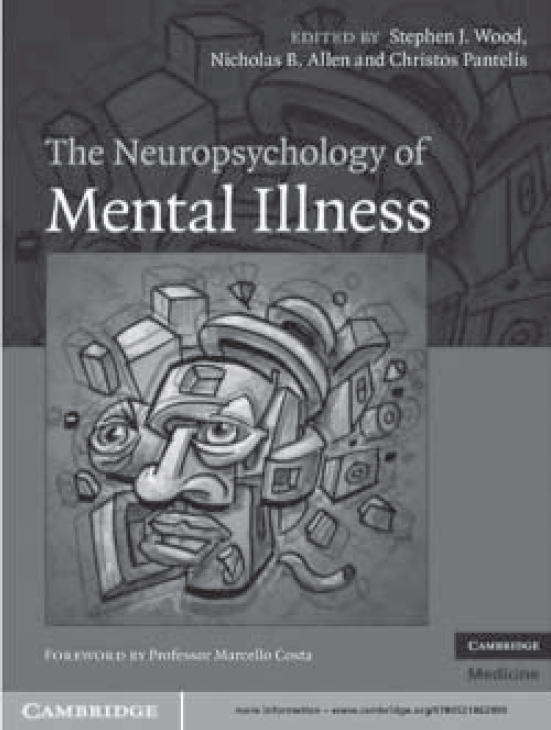
One of the lesser noted revisions in the draft DSM–5 is a change in the definition of a mental disorder from ‘a manifestation of a behavioural, psychological, or biological dysfunction’ to one ‘that reflects an underlying psychobiological dysfunction’, highlighting the fact that we have increasingly come to regard neuropsychology as the best compromise in the vexatious mind–body problem and sometimes the reluctant redeemer of a medical specialty best known for its irreconcilable differences between objective and subjective world views.
Wood, Allen and Pantelis's comprehensive book aims to map out what this compromise has told us about the causes and effects of psychiatric disorder so far and, furthermore, what we have learnt about how to integrate neuropsychological approaches into the art and science of psychiatry. One component of this manifests itself as a series of competent and up-to-date review chapters on what we know about the neuropsychology of schizophrenia, as well as developmental, personality, eating, substance use, obsessive–compulsive and mood disorders, although I was left puzzled by the lack of chapters on anxiety disorders or post-traumatic stress disorder, both of which have received a great deal of neuropsychological attention.
The book also boasts a section of chapters dedicated to examining psychopathology from the perspective of normal neuropsychological processes and their associated weaknesses, with exceptional sections on how neuropsychological approaches integrate with other fields such as genetics, neuroimaging, emotion and diagnostic approaches. Perhaps most surprisingly, the book closes with a section dedicated to a ‘trialogue’ between neuroscientists, philosophers and psychiatrists starting from the premise, outlined by Stephens and Graham, that mental illnesses are fundamentally disorders of consciousness. Jaak Panksepp is perhaps the most provocative, arguing for an evolutionary account of emotional neurocircuitry and hence a common substrate for conscious affective experience and pathology across species, whereas Vogely and Newen go for a more contemporary approach that examines self–other distinctions in light of recent research on the ‘default network’. Even if talk of consciousness leaves you cold, or indeed, frustrated, these chapters serve to elaborate numerous examples of how neurocognitive theories cannot be value-neutral with regard to what is considered a normal or abnormal human process.
Despite its intentionally wide scope, this book is not the best place to look for a complete review of the neurocognitive evidence for each psychiatric disorder, but as a practical resource for how to use and make sense of neuropsychology in psychiatry, it is indispensable.





eLetters
No eLetters have been published for this article.